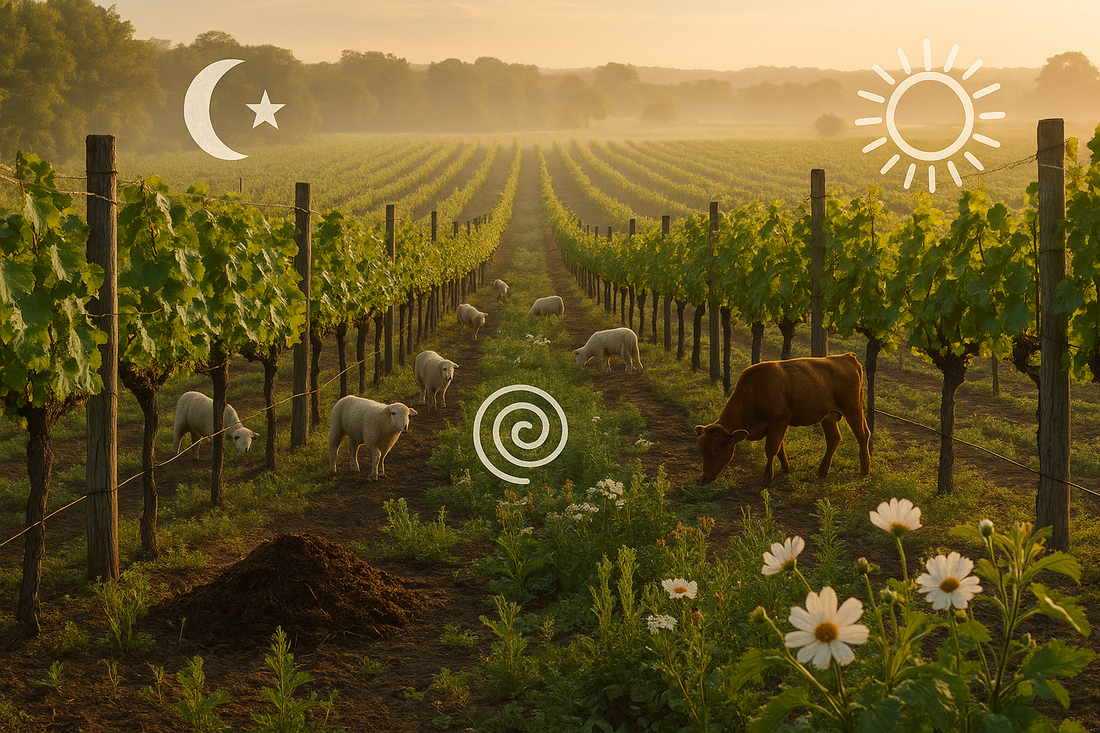
What Is Natural Wine? A Beginner’s Introduction
Share
Introduction
In recent years, the term “natural wine” has gained significant attention and curiosity among wine enthusiasts, sommeliers, and casual drinkers alike. But what exactly is natural wine? Is it just another marketing buzzword, or does it represent a meaningful movement in winemaking? As a sommelier who has explored natural wines across various regions, I’ll explain what natural wine is, how it differs from conventional wine, and why it has sparked both excitement and debate in the wine community.
Defining Natural Wine
Natural wine is a style of wine made with minimal intervention both in the vineyard and winery. It emphasizes organic or biodynamic farming, wild yeast fermentation, and the absence of additives.
- Vineyard Practices: Grapes are grown without synthetic pesticides, herbicides, or chemical fertilizers, often following organic or biodynamic principles.
- Winemaking: Fermentation relies on native yeasts naturally present on the grape skins and in the winery environment, instead of cultured commercial yeasts.
- Additives: Natural wines avoid or limit additives such as sulfur dioxide (used to preserve wine), acid adjustments, fining agents, or flavor enhancers.
Characteristics of Natural Wine
Natural wines tend to exhibit unique sensory profiles that differ from conventional wines.
- Appearance: They may be cloudy or hazy due to lack of filtration.
- Aromas and Flavors: Often vibrant, fresh, and sometimes funky, with unexpected or wild aromas.
- Texture: Can feel lively and energetic, sometimes with slight effervescence or tartness.
Why Drink Natural Wine?
Natural wine appeals to those interested in sustainability, authenticity, and exploring new flavors.
- It reflects the terroir in an unfiltered, raw form.
- It offers a connection to traditional and ancestral winemaking methods.
- For many, it represents an ethical choice aligned with environmental values.
Controversies and Challenges
The natural wine movement is not without criticism.
- Inconsistency: Because of minimal intervention, natural wines can vary widely in quality and style, sometimes showing flaws like volatile acidity or off aromas.
- Subjectivity: The “funkiness” prized by some can be off-putting to others.
- Regulation: No official certification exists for natural wine, leading to confusion and skepticism.
How to Approach Natural Wine as a Beginner
- Taste a variety of natural wines from reputable producers.
- Visit natural wine bars or attend tastings focused on this style.
- Keep an open mind and develop your palate gradually.
Conclusion
Natural wine is an exciting and evolving category that challenges traditional winemaking norms. Whether you love its vibrant character or prefer classic styles, understanding natural wine broadens your appreciation of the diversity and creativity in today’s wine world.

